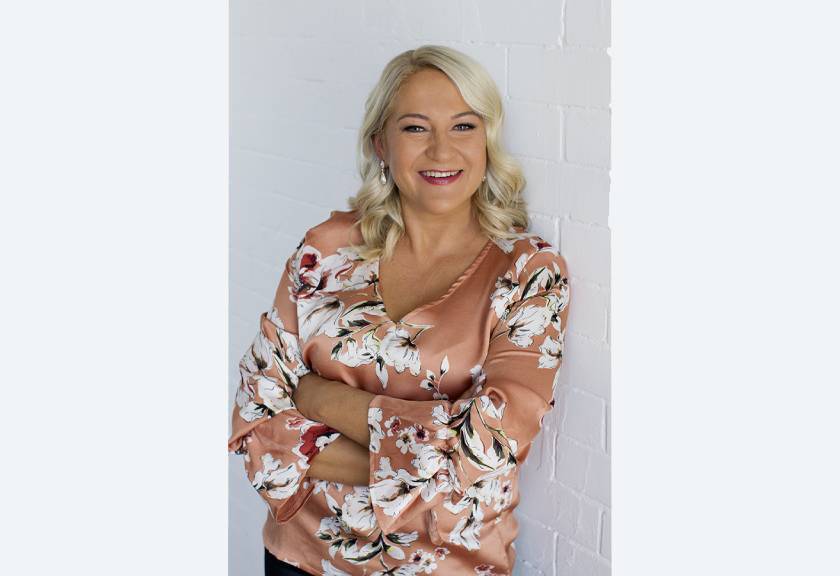How to manage grief in different situations

Grief – it’s something we all go through at some point in our lives. But knowing how to handle that grief, whether it’s you or someone you love, can be complicated. Read on for strategies on dealing with grief.
“Grief is an incredibly personal journey and there’s no right or wrong way to grieve,” says Dr Olga Lavalle, a psychologist who specialises in grief and has experienced tragedy firsthand after the sudden loss of her husband in 2014.
“Grief never ends. You just learn to live with it. Your feelings are normal given the circumstances, and it’s important to not be frightened of your negative emotions. As time goes on these emotions will come and go – sometimes they will be very intense, and other times the intensity of the pain will be less.”
Some tips on getting through it:
- Take time: “Sit with your grief, allow yourself to feel the pain and eventually the pain becomes tolerable and manageable. Take each day as it comes and do one thing at a time, breaking down tasks into small, achievable steps.”
- Look after yourself: “Take a five-minute walk, get a little fresh air, eat a healthy meal. Grief can take its toll on your physical health and if you already have health issues, the stress of grief can lead to a decline in your physical health. Therefore, it’s important to look after yourself and see your GP for a check-up.”
- Get support: “Reach out to family and friends. There’s nothing wrong with needing support. And if you feel you need extra support, seek help from a professional or join a bereavement group.”
What to say and what not to say to a grieving person
When someone is in mourning, many of us avoid them altogether, worrying that we might say the wrong thing. But it’s better to bumble your way through offering condolences than avoid the person. Dr Lavalle shares her tips:
Don’t say…
- "They’re in a better place". Never say this. While you may think this is comforting, the person who is grieving just wants their loved one back and does not even consider that their loved one is in a better place.
- "I know how you feel". You will never know how someone feels. While you may understand how they feel, you won’t truly know because everybody's grief is different.
- "You have to stay strong". What does ‘stay strong’ even mean? The grieving person is allowed to feel and express their emotions. Saying to stay strong implies any negative expression of emotions should not happen.
- "Don’t cry". How can you not cry? Being able to show your emotions is totally okay.
- "Time will heal". It might lessen the pain, but it doesn't heal; you learn to live with it.
Do say…
- "I’m saddened by your loss".
- "I’m very sorry you’re going through this".
- "I’m sorry. I don’t know what to say, but please know I’m here for you".
- "Is there anything you want to talk about? I’m listening".
- "I wish there was something I could say or do to help ease your pain".
Dr Lavalle says letting someone talk is key: “Just being there and listening is very helpful, and if you know them very well, it’s good to speak about the happy memories you have of the person who's passed away.”
Practical ideas for helping people who are grieving
Many of us may find it awkward to approach a grieving friend or loved one, but that doesn’t mean you should stay away. Offering your condolences and practical help is always worth trying. Dr Lavalle’s suggests:
- Drop in and help: “Ask, ‘What can I do for you right now?’ If you’re close to the person, you could go over and simply clean the house, do some laundry, get their groceries or take them to the supermarket if they want to go.”
- Keep in touch after the funeral: “After a funeral, most people tend to stay away, and some people still need that support while others want to be alone. Ask them if they want time alone or not.”
- Touch base on special occasions: “It’s nice to phone and say something like, ‘I remembered that it would’ve been John’s birthday today…’. That means a lot to the person grieving that you’ve remembered that time – it makes them feel as if there’s support out there, and people haven’t forgotten the person who died.
Handling grief at a funeral
Obviously the funeral can be a very stressful and difficult day for someone who is grieving – and chances are they will be disoriented and emotionally distraught.
If you’re in a position to take tasks off their plate, offer to do things like coordinate guests coming in and out of town, help plan the funeral or wake, make sure the bereaved has an appropriate outfit and is prepared for the funeral if he or she is speaking. On the day, answering the phone, offering to care for children, ensuring seats are available at the front and introducing yourself to guests can also take pressure off the person grieving.
“Funerals can also be very anxiety-provoking,” says Dr Lavalle. “If you’re grieving, having family and friends around you and allowing your emotions to flow will help. Just remember, there’s no right or wrong way to get through it.”
Helping a grieving person at work
Often, a person may have to return to work when they’re still in mourning – and if you’re in a position to make their work life a little easier, it’s important to do so, according to Dr Lavalle.
“It’s a good idea to speak to the person beforehand so you can assess what they’re comfortable doing at work, whether you can take some tasks off them, ease their workload and allow them to take the extra breaks,” she suggests.
Being upfront about how to handle the person’s grief is also a good idea. “Often, a grieving person will get anxious about people coming up to them with condolences, in case they become upset. It’s important to ask the bereaved, ‘How can we help you? Would you like us to speak to the staff and ask them not to approach you all at once?’ Ultimately, it’s a good thing to do whatever you can to be supportive of the person, so they can return to work and get some normality as well.”
If you’re trying to help someone who has just lost a loved one, it’s important to remember that grief is different for everyone – and staying close, helping where you can and being around for that person will be appreciated.
For those who are grieving – be kind to yourself and reach out for help and support. Losing someone you love can be debilitating and learning to live with and manage your grief is a process that takes time. We hope this article has been helpful.
If you’d like more information on the funeral process, please visit our Discovery Hub
Dr Olga Lavalle is a Clinical Psychologist with a clinic located based in Wollongong NSW. After the sudden loss of her husband in 2014, Olga navigated through her own grief and has since published a book ‘The New Normal: A Widow’s Guide to Grief’ which has won GOLD and SILVER eLIT Book Award in 2019. Find out more information about Dr Lavall and her book.

20 Mar 2020